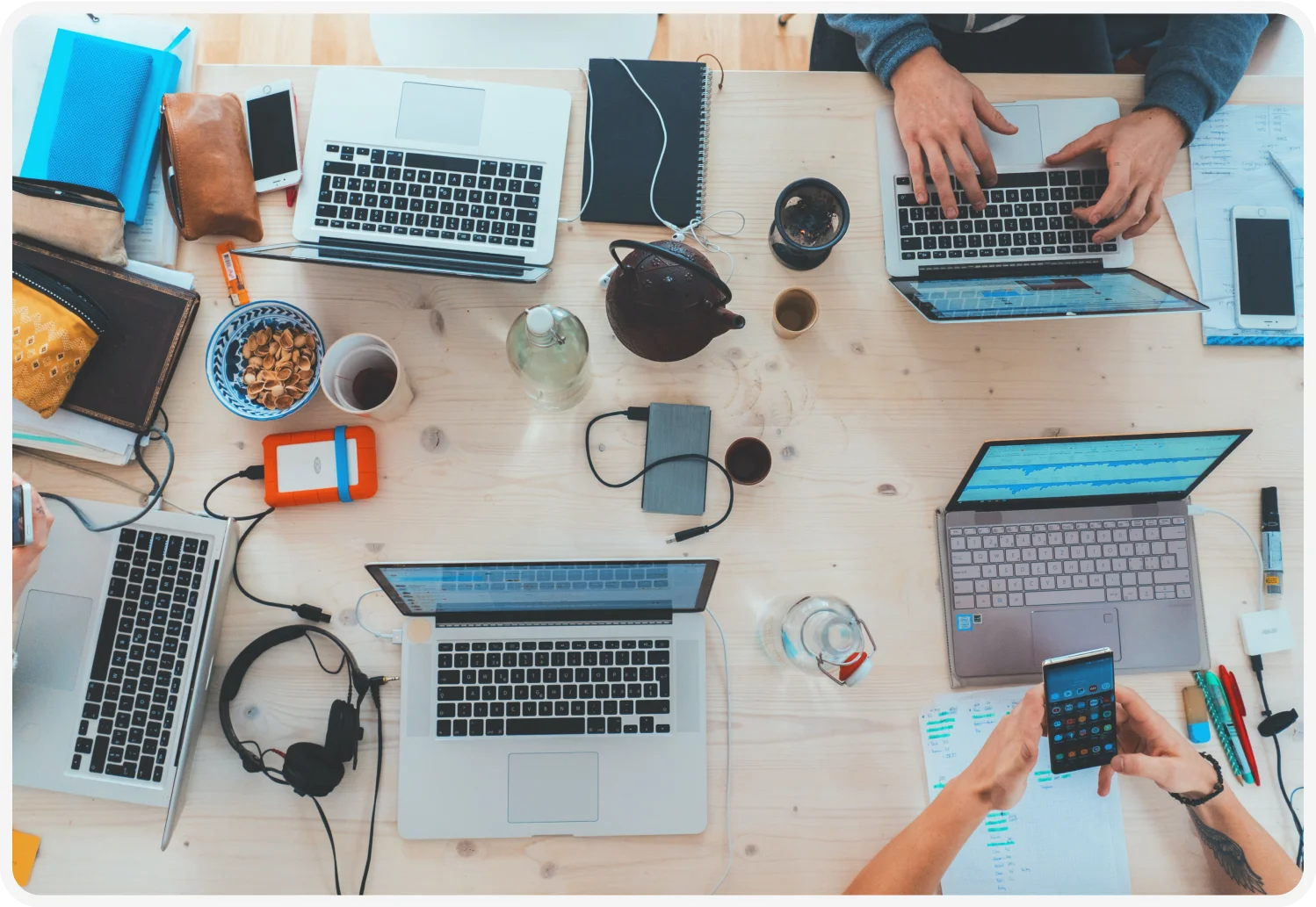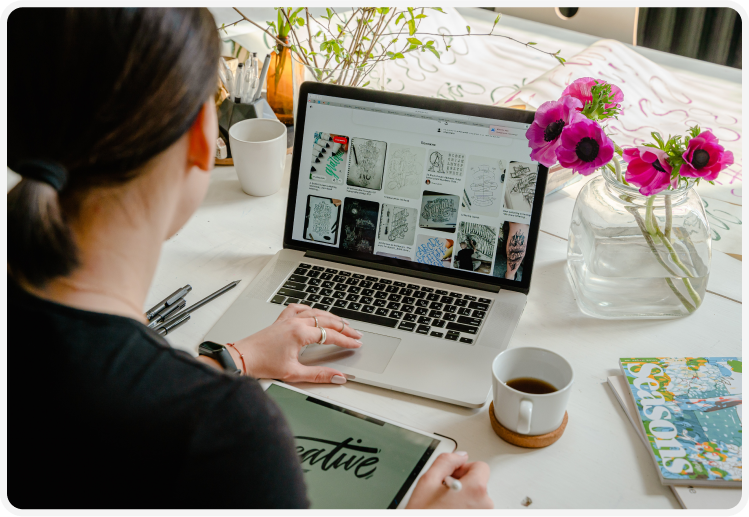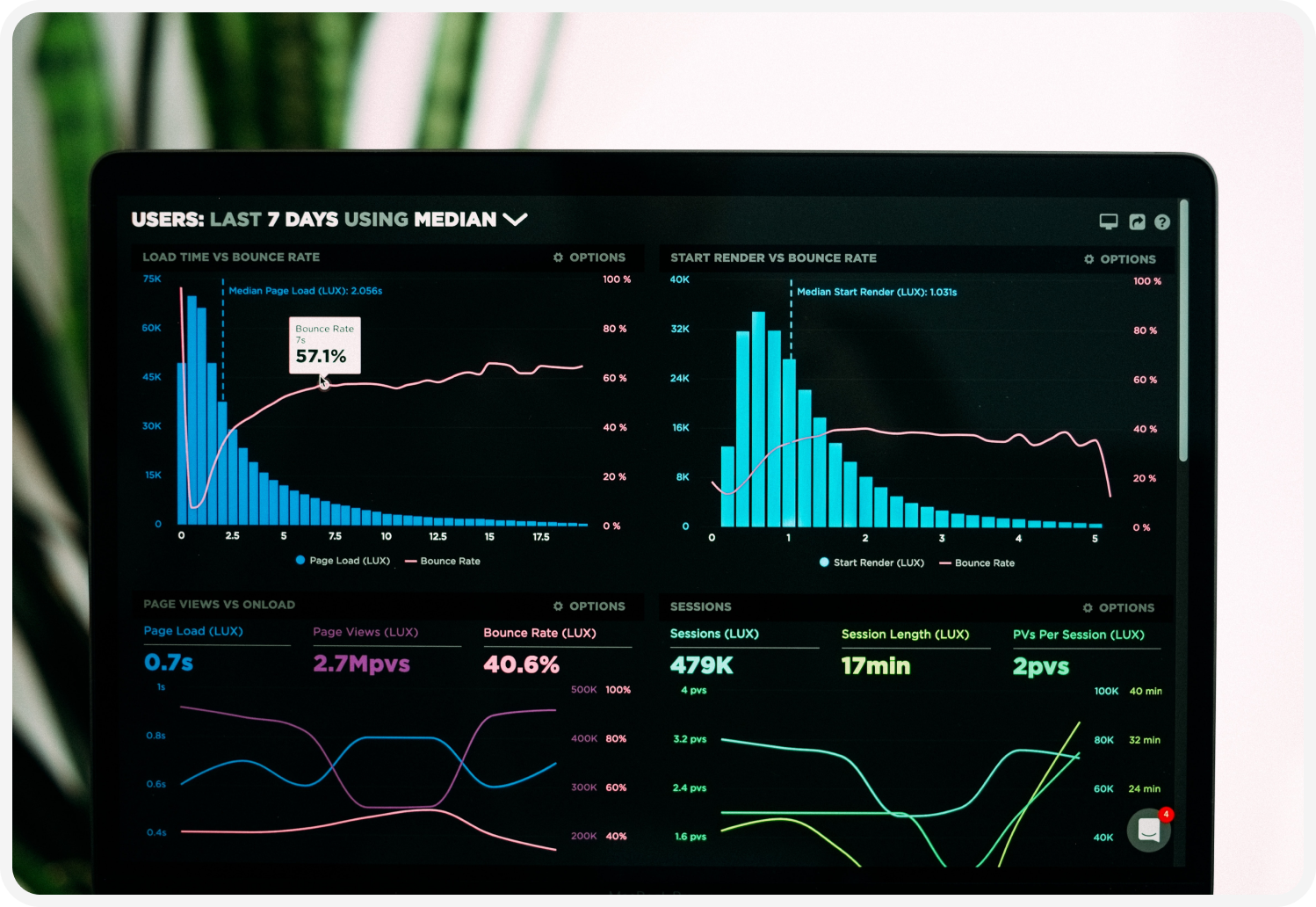SaSS Design for growing startups
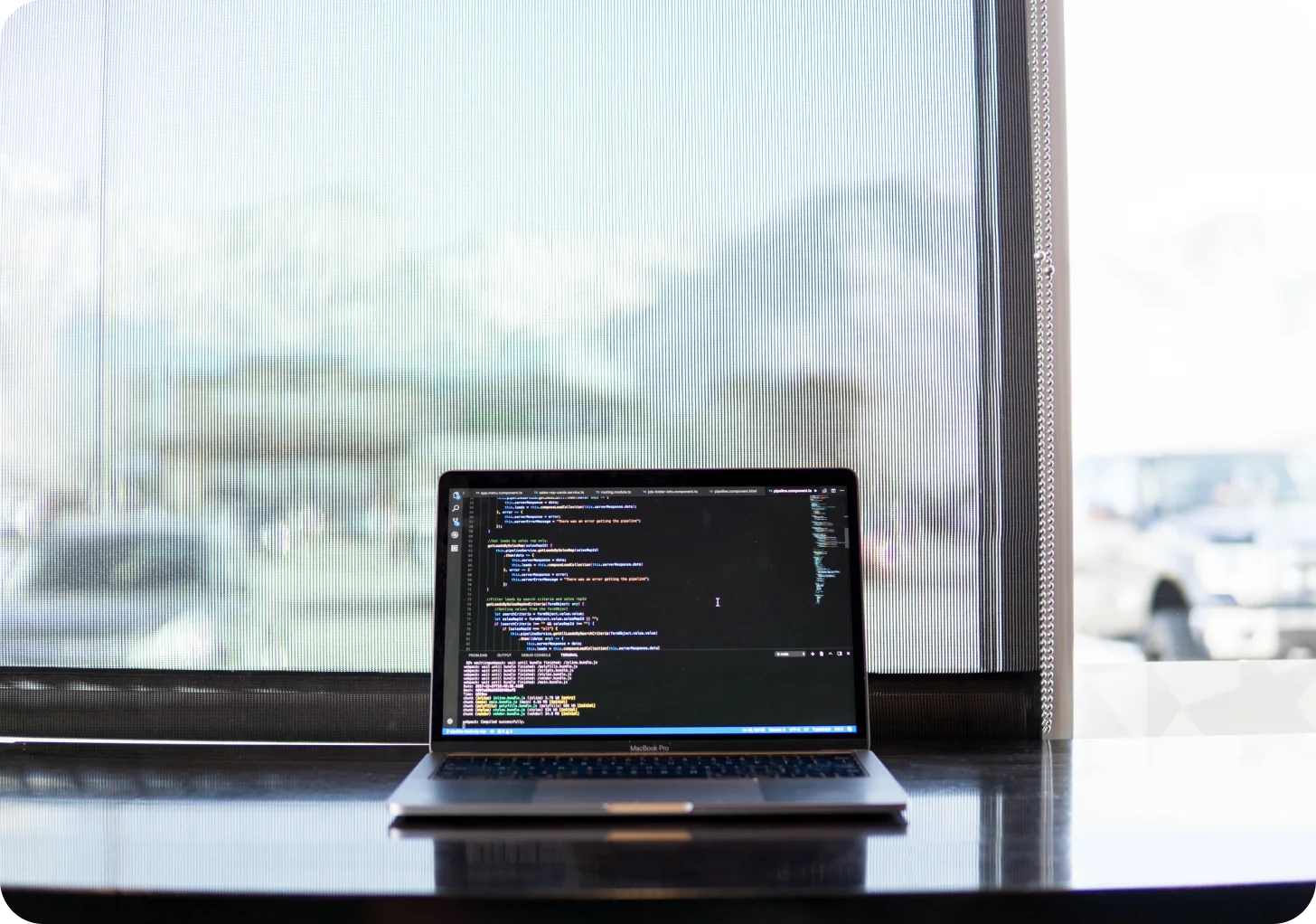
Improve productivity by 33%
Product design is key for successful SaSS implementation, as it ensures that the software meets the needs of the user. Good design makes the product easier to use, more intuitive and enjoyable to interact with. Furthermore, it makes a product more attractive and desirable which improves user engagement and loyalty.
According to recent studies, good design is essential for successful SaSS implementation. It can lead to increased user engagement, improved user satisfaction and a more efficient workflow. Design can also provide users with a seamless experience which reduces time spent on tedious tasks. Additionally, well-designed software solutions have been found to improve productivity by as much as 33%.
Great design creates memorable brand experiences
How can hiring a designer
help my Sass startup?
MVP Design
A designer can play a crucial role in helping a founder create a Minimum Viable Product (MVP) for a software as a service (SaaS) product by conducting user research to understand the needs and pain points of the target audience, creating wireframes and mockups to visualize the MVP's user interface and user experience (UX), collaborating with the development team to determine the MVP's core features and functionality, helping to prioritize features and functionality based on user research and the MVP's overall goals, creating design guidelines and style guidelines to ensure consistency across the MVP, continuously testing and iterating on the MVP's design based on user feedback and usage data to improve the overall user experience, providing visual design elements such as icons, graphics, and typography to enhance the MVP's aesthetic and usability, creating a user journey map to understand user flow and interactions with the MVP and creating a prototype or a clickable design to test the MVP's usability and user flow before development.
Improve conversions
A designer can help improve conversions for a SaaS product by conducting user research, creating a user-centered design, optimizing layout, navigation, and calls to action, using persuasive design elements, building a trustworthy brand identity, continuously testing and iterating, creating personalized landing pages, and utilizing A/B testing. This will help guide users through the conversion process and make it easy for them to understand the value of the product and how it can solve their problems while building trust and credibility and addressing any issues impacting conversions.
Create brand identities
A designer can help create a brand identity for a SaaS product by conducting research to understand the target audience, competition and unique value proposition, collaborating with stakeholders to define the brand's personality, voice, and messaging, developing a visual identity system that includes a logo, color palette, typography, and imagery that represents the brand's essence and differentiates it from competitors, creating guidelines and assets to ensure consistency across all touchpoints, testing the visual identity with target audience, and continuously monitoring the market trends, feedback and updating the visual identity accordingly.
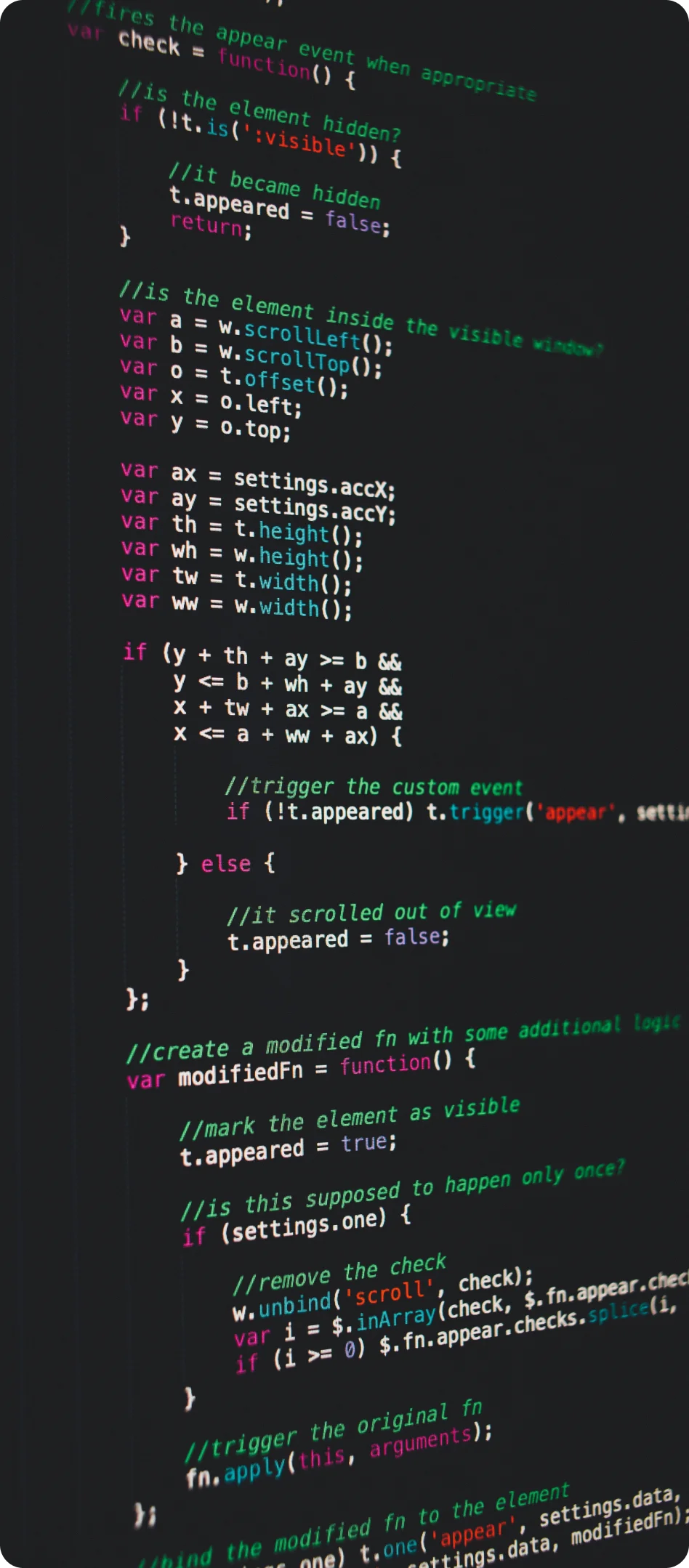
How a designer can help innovate the Sass space
A designer can help innovate the SaaS space by conducting user research to identify new opportunities, creating unique user interface and user experience concepts, using design thinking and human-centered design methodologies to come up with new and innovative solutions, experimenting with emerging technologies and design trends, and collaborating with cross-functional teams to bring new ideas to life. They can help push the boundaries of what's possible in the SaaS space, and create products that meet the evolving needs of users in new and exciting ways.
Dashboards and Information Hierarchy
Data Dashboards
A designer can help create dashboards for a SaaS product by conducting user research to understand the needs and goals of the target audience, and identify key metrics that need to be tracked. They can then create wireframes and mockups to visualize the dashboard's layout, navigation, and overall user experience (UX). By collaborating with the development team, designers can help determine the functionality and data visualization techniques that will be used, such as charts, graphs, and other data visualizations, to help users quickly and easily understand the data being presented.
Information Hierarchy
A designer can help with information hierarchy by creating a visual structure that guides the user through the most important information first. This can be achieved by using techniques such as typography, color, layout, and imagery to create a clear hierarchy of information. The designer starts by analyzing the content and identifying the most important pieces of information that need to be conveyed to the user. Then, they can use various design elements such as headlines, subheadings, and bullet points to create a clear and easy-to-follow structure.
Why hiring a freelance designer is smarter
Hiring a freelancer designer for a software as a service (SaaS) start-up can be a smart move for several reasons.
First, hiring a freelancer designer allows a start-up to have access to a wide range of specialized skills and expertise without the commitment of a full-time employee. A freelancer designer can bring a wealth of experience and knowledge to the table that can be leveraged to help the start-up achieve its goals.
Second, hiring a freelancer designer can be more cost-effective for a start-up. A freelancer typically charges by the hour or project, rather than a full-time salary, which can be a more affordable option for a start-up with limited resources. Additionally, a freelancer designer may also have a lower overhead and fewer benefits costs, which can help to keep costs down.
Hiring a freelancer is up to 30% faster than a traditional employee. Also by hiring a full-time freelancer on design match you save up to 20% on hourly rates. Start the matching process today, it's risk free.
I should hire a designer...
When creating a Minimum Viable Product (MVP)
A designer can help create a user-centred design that makes it easy for users to understand the product's value and how it can solve their problems.
When optimizing for conversions
A designer can help optimize the layout, navigation, and calls to action (CTA) to guide users through the conversion process and increase conversions.
When trying to reach product market
Your designer can develop a data-driven approach to prioritize features, functionality and messaging to help you reach product market fit.
When you're validating new ideas
A designer can help you create the assets to help you validate new product ideas.
Why hire your next product designer with Design Match
Risk Management
We take care of international compliance, vetting, legal and financial components of hiring a designer. We provide a foundation for sustainable growth.
Flexibility
Our weekly billing model allows your designs to work along side the growth of your startup. There are no longterm contracts at Design Match.
Support
Design Match is run by designers who not only help you find the perfect match, but can provide suggestions, tools and support along the way.
Common questions
from founder
When hiring a designer for your SaaS company, look for someone with a strong portfolio and relevant experience in the SaaS industry. It's also important to find someone who can work well in a team, has good communication skills and is able to understand your company's vision and goals.
Hiring a designer can bring a wealth of experience and knowledge to your company that can be leveraged to achieve your goals. A designer can help create a user-centred design that addresses the needs of your target audience, create a visually appealing brand identity that helps your product stand out in the market, create effective dashboards and landing pages, optimize conversions, create a clear information hierarchy and experiment with emerging technologies and design trends.
The cost of hiring a designer for your SaaS company can vary depending on the designer's level of experience, location, and the scope of the project. A freelancer designer may charge by the hour or project, while a full-time designer may have a salary. It's important to have a clear understanding of the scope of the project and budget before hiring a designer.
A designer can help you reach product-market fit by conducting user research to understand the needs and pain points of the target audience, creating wireframes, mockups, and interactive prototypes to visualize the product's user interface and user experience (UX) and testing them with potential users to gather feedback. Designers can also help you create a user-centered design that addresses the needs of your target audience and optimize conversions.
The decision to hire a full-time designer or a freelancer designer will depend on the needs of your SaaS company. Hiring a full-time designer can be beneficial if you have a large and ongoing design needs, while a freelancer designer may be a better option if you have specific, short-term projects or need specialized skills. Hiring a freelancer designer can also be more cost-effective and offers more flexibility, allowing you to scale up or down as needed. It's important to consider your company's specific needs and budget before making a decision.
Find your next designer today with Design Match
Speak with a matcher
Tell us what you're working on and see if Design Match is a good fit

